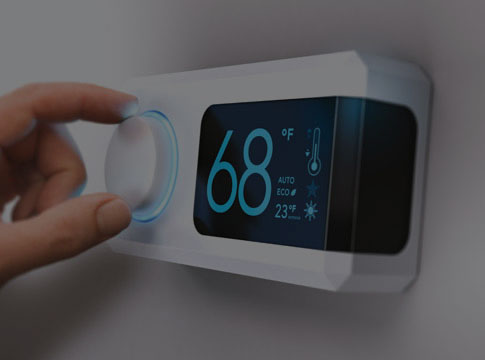Related Programs
We offer rebates, loans and tips to help you reduce your energy and water use in and around your home.
Saving money on your energy bill may be easier than you think. Check out tips that could deliver real savings.
Electric Outage: 1-844-484-2300
Water Emergency: 541-685-7595
EWEB Main: 541-685-7000
The Greenpower Grant, funded solely by voluntary customer subscriptions, supports local sustainability projects.
Find Out MorePreliminary results of an EWEB study indicate that cutting back demand can contribute to maintaining a reliable, affordable energy supply.
Find Out MoreEWEB under-estimated energy usage for about one-fifth of upriver customers in December or January, resulting in higher true-up bills in February.
Find Out MoreThe Greenpower Grant, funded by voluntary customer subscriptions to Greenpower, not customer grants, supports projects that advance renewable energy, clean energy education or efforts to reduce or offset local carbon emissions.
Find Out MoreOne week into Women's History Month and just before International Women's Day on March 8, three women in EWEB leadership roles embarked on a 10-month-long journey of mentorship, fellowship, and professional development.
Find Out MoreBusinesses can cut energy costs with EWEB’s free Energy Assessments and efficiency programs. Plus, for a limited time, BRING is offering $1,000 rebates for qualifying upgrades—apply by Feb. 28!
Find Out MoreGoals focus on supporting low-income community members and renters, while improving operational efficiency.
Find Out MoreEWEB line techs are proud partners and participants in the rodeo fundraiser every year.
Find Out MoreFrom blocking a draft to replacing your heating system, each action you take can save water and electricity.
Find Out MoreEWEB budgets funding to help customers struggling to pay their utility bill, but the need is always greater than what we can provide alone. Energy Share, our customer donation funded program helps fill the gap.
Find Out MoreEWEB’s budget is less than initially projected while still addressing aging infrastructure and rising costs to ensure reliable utility services for Eugene.
Find Out MoreThe holiday season is the perfect opportunity to help your friends and family prepare for an emergency or disaster.
Find Out MoreEWEB’s elected Board of Commissioners are considering rate changes intended to help maintain reliable utility services and support essential investments in Eugene’s water and electric infrastructure.
Find Out MoreAfter two years of rebuilding the substation, EWEB honors the Currin Substation with a ribbon-cutting.
Find Out MoreWhile the costs of producing and delivering electricity and water are rising, EWEB is actively working to reduce the financial impact of rate increases in 2025.
Find Out MoreJanuary 27, 2025 • Jen Connors, EWEB Communications

Eugene is experiencing some of the coldest temperatures we've seen this winter. We know that keeping your home warm during cold winter nights is important—and we also know that high utility bills can be a real concern. When overnight low temperatures drop into the 20s, heating systems must work much harder to keep homes warm. Even if you leave your thermostat untouched, your heating system will consume more energy to maintain a steady indoor temperature as the outdoor temperature plummets.
As a community-owned utility, EWEB is committed to helping all our customers, including tenants and those on limited incomes, save money and stay warm during the cold winter months.
In our community, the highest demand for energy occurs during the coldest months when heating needs are at their peak. Since heating accounts for the majority of electricity costs in most homes, you might notice a significant increase in your January electric bill.
Even if you maintain your thermostat at 68°F, your energy use could rise by 75–200% as your heating system works overtime to keep your home comfortable. Smaller, energy-efficient homes or those with heat pumps fall on the lower end of this range, while larger homes or those with less efficient electric resistance heating (like baseboard or wall heaters) fall on the higher end.
For example, a typical, weatherized home in Eugene—built in the 1950s–70s and approximately 1,700 square feet—uses about 1,600 kWh per month on average. However, the seasonal shift from fall to winter brings dramatic changes in energy use, as does the type of heating system:
| Electric Resistance Heat | Heat Pump | ||
|---|---|---|---|
| October | January | January | |
| Average Eugene temperature | 65°F | 48°F | 48°F |
| Thermostat setting | 68°F | 68° | 68° |
| Typical home energy use | 830 kWh | 2,400 kWh | 1,477 kWh |
| Electric bill | $111 | $272 (145% increase from October) | $177 (60% increase from October) |
“Heating accounts for about 50% of an average Eugene home’s annual energy use,” Matt Lutter, an Energy Specialist at EWEB, says. “But in winter, it can climb to 60–70% or more of a monthly bill. I’ve seen some customers’ energy usage increase tenfold from October to January.”
We understand that budgeting for electricity is important for our customers. To help you plan ahead, we’ve created a bill calculator (Excel file) that allows you to estimate your 2025 energy costs based on your household’s usage.
To help customers reduce energy use and lower bills, EWEB offers rebates and zero-interest loans for energy-efficient upgrades. These programs are designed to make energy efficiency accessible to everyone, with enhanced rebates and loans available for income-qualifying households and rental properties.
For example:
| Standard | Limited-Income and/or Rental | |
|---|---|---|
| Ductless Heat Pump | $800 rebate, or up to a $16,000 zero-percent interest loan | Owner-occupied rebate $4,500 Rental rebate $1,000 Up to a $16,000 zero-percent interest loan can be combined with rebate. |
| Insulation | $1 per square foot of insulation (up to 50% of the job cost), and $40 for insulated entry doors, or up to $6,000 zero-interest loan | 100% of eligible insulation costs |
These upgrades not only help reduce energy bills but also make homes more comfortable during extreme weather. “Investing in efficiency is one of the best ways to manage energy costs, especially in winter but really all year round,” Lutter says.
We offer rebates, loans and tips to help you reduce your energy and water use in and around your home.
Saving money on your energy bill may be easier than you think. Check out tips that could deliver real savings.
Para asistencia en español llame al 541-685-7000, presione 9
Mailing Address: 4200 Roosevelt Blvd., Eugene, OR 97402
Phone: 541-685-7000
Toll free: 800-841-5871
Email: eweb.answers@eweb.org
Customer service phone hours: 8:30 a.m. to 5 p.m. Monday - Friday



